Torture – Black Sites of Turkey
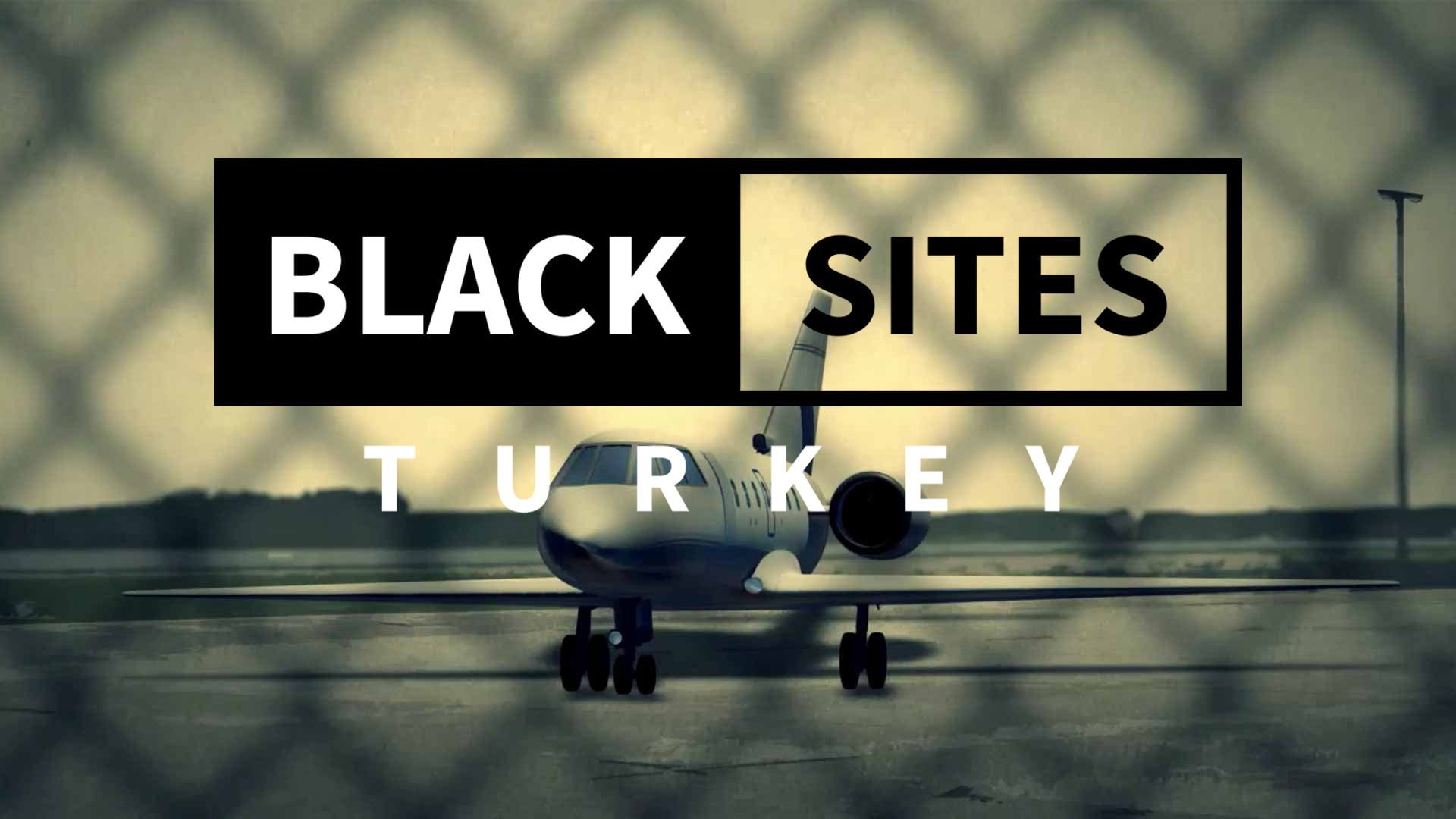
Date posted: December 12, 2018
In a near-repeat of the CIA’s ‘extraordinary renditions’, the regime of Turkish president Erdoğan is kidnapping dozens of members of the Gülen movement from around the world. Victims are now raising a serious accusation: secret torture sites are part of the repression. A team of nine media organizations from eight countries, coordinated by CORRECTIV, investigates.

Kosovo
It’s just before 8am, Thursday, 29 March this year, on the outskirts of the Kosovan capital Pristina. Two cars, a family saloon and a police patrol car are parked, next to a road-side nursery selling pot-plants and tree seedlings. Two men in police uniform approach the vehicle they’ve just flagged down. It appears to be a routine traffic inspection.
One of the officers talks to the driver through his window. Meanwhile his partner slowly circles round the back of the car. Without warning he pulls open the front passenger door, grabs the passenger by the throat, and forces him outside the vehicle. A woman jumps out of the rear, and starts remonstrating. While this is happening, the other officer drags out the driver, handcuffs him, and bundles him into the patrol car. His partner rushes to join him and they make their getaway.
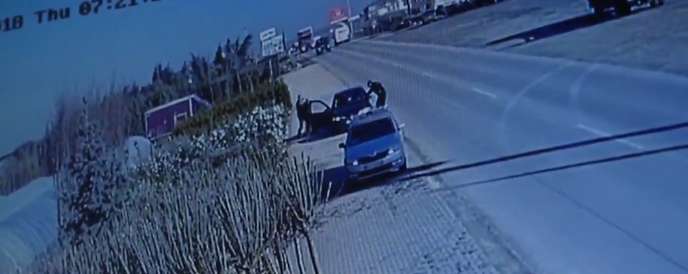
Just a few minutes earlier, a plane had touched down at nearby Pristina international airport, a Bombardier Challenger private jet with the registration TC-KLE.
Around 10am it takes off again. Onboard is the driver of the intercepted vehicle, as well as five other men. All but one of them are teachers at the Mehmet Akif school in Pristina. The jet’s official destination: a military base near Ankara.
As luck would have it, the roadside nursery’s CCTV camera had captured the kidnapping from start to finish.
In the past two years, this has been a far from unique occurrence. The same thing has happened over and again, in Gabon, Sudan, the Republic of Moldova, Azerbaijan, Ukraine, Malaysia, Switzerland and Mongolia. The list of countries in which Turkish nationals connected with the opposition Gülen movement have been abducted and forcibly returned to Turkey without the tedious need for lengthy extradition proceedings has become something that has the makings of an international scandal.
In the wake of the failed July 2016 coup, Turkish President Recep Tayyip Erdoğan promised that members of the Gülen movement would be brought back to the country and handed over to its justice system. Nine international media organizations, coordinated by the non-profit newsroom CORRECTIV can now reveal the extent and reach of the kidnapping programme run by the country’s National Intelligence Organization (Millî İstihbarat Teşkilatı’, or MIT, in Turkish). There are also accounts of another, darker side to the suppression machinery that has remained unreported till now: secret torture sites inside Turkey.
The Turkish government did not respond to a request for comment for this story. The government has in the past denied accusations of torture.
13 journalists, nine media organizations from eight countries. It is through our cooperation that we have revealed the full extent of repression in Turkey. Your support helps us to do more cross-border investigations with our partners. Donate now!
‘Extraordinary rendition’: that was the term the US notoriously gave to one of its secret operations in the “War against Terror“. The CIA kidnapped terror suspects from around the world and flew them to secret and remote locations, including in Poland and Thailand, where they were subjected to torture. Neither internationally recognized human rights nor local laws applied at these so-called black sites.
This investigation can now reveal that Turkey is running a similar programme, but with a difference. While the Turkish intelligence service MIT is kidnapping Turkish nationals in foreign countries often with the connivance of local governments, people are also being disappeared inside Turkey, according to accounts by victims and human rights activists. And unlike the CIA, the Turkish state has no need to fly the victims to locations abroad.
Speaking to CORRECTIV, Frontal 21, the investigative programme of German public broadcaster ZDF, and other journalists from the international team, two Turkish nationals have separately detailed what they say were their forced disappearances and their months-long ordeals in black sites in Turkey. These are the first eye-witness accounts of their kind. Both are followers of the Gülen movement. The details of their accounts are impossible to verify. But under examination, both appear credible.
Ankara
The first, ‘Tolga’, says his disappearance from the street, took about five seconds.
Tolga (a pseudonym) is a former employee of an institution run by the Gülen movement. President Erdoğan claimed the movement was behind the failed military coup in 2016. When Tolga was kidnapped off the street in the first half of 2017, he had been lying low for months, moving from flat to flat with his family.
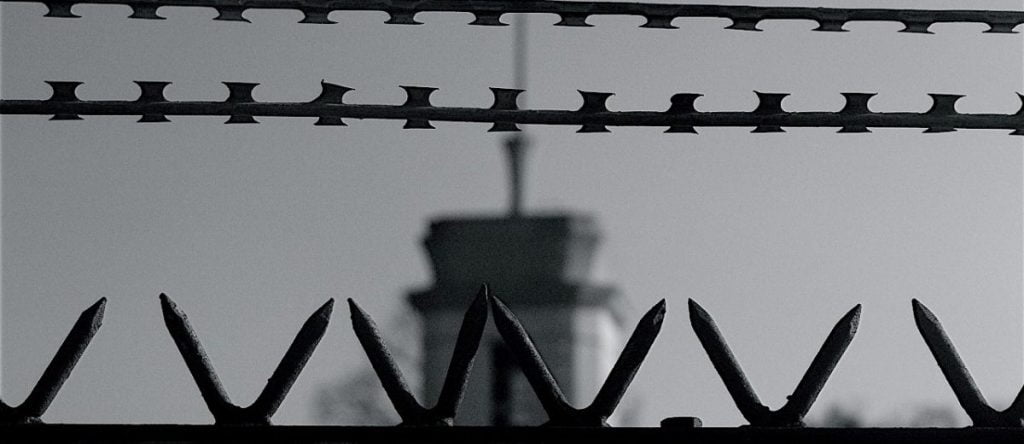
Tolga had just dropped off his daughter at school when a man appeared abruptly in front of him, shouting and gesturing. While Tolga was still trying to understand what the man was saying, he was grabbed from behind. Four arms forced him into a transport van.
He would continue to wear it for the next three months. When he was no longer able to resist, his hands and feet were bound.
Tolga’s mind was racing. He had heard about these kidnappings: “Is that what’s happening to me now?”
The drive didn’t take long. Tolga heard a heavy door slide open and he was taken into a hall, forced to remove his clothes, given pyjamas and shoved into a cell.
From behind the locked door, he was ordered to kneel down with his back to the door and to lower his head.
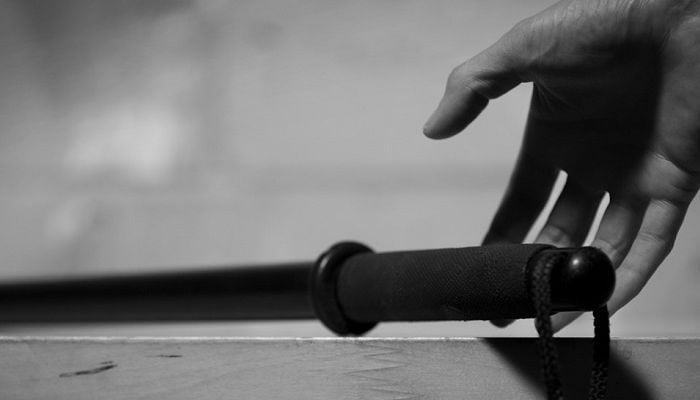
Half an hour later, they entered. And took him from his cell to another room.
Then it started. Several men beat him with clubs, and administered electrical shocks. They screamed at him, insulted him.
Something was placed in his hand. A sex toy. The men stripped him and forced him onto his knees and onto the ground.
There must have been a camera in the cell. Later, whenever he tried to worry the sack over his head, they screamed at him through a loud speaker. After ten days of this, Tolga was allowed to shower and for the first time since his arrival, he saw his own body. It was covered in bruises. He’d lost weight.
Tolga was given very little water. In the morning, he received a small cheese and tomato sandwich, in the evening, a bowl of rice soup and a piece of bread. Between meals, he was interrogated and tortured two or three times a day.
As soon as he closed his eyes, he had nightmares. He sees his crying children. That’s why he tries not to sleep. The beatings are easier to bear than the threats to his family. “We will do these same things to your wife, your parents. Your children are going to watch.”
Sometimes they remove the sack from his head and place him in front of a wall with pictures. They ask him for information about other members of the Gülen movement: who’s in financial trouble, who has a weakness for material things.
They seem to know almost everything anyway.
Erdoğan’s war on the Gülenists
No mercy for an enemy who was once a friend. Maybe that is the reason why the Erdoğan regime has so relentlessly pursued the Gülen movement since the failed coup attempt in the summer of 2016. “We will continue the fight against the Gülenists until we have completely eradicated them,” he told his Justice and Development Party (AKP) MPs in July this year.
Under military rule in Turkey, Islamists were effectively excluded from national government. The Gülen movement instead concentrated on a gradual, bottom-up Islamization of society. It focused on buildings schools and charitable organizations. It became a major power in the land and beyond.
The movement is now truly global. There are, according to some estimates, up to ten million followers of the preacher US-based Fethullah Gülen, aged 77, and his brand of Islam. They run about 2,000 schools in 160 countries, including, incidentally, the Mehmet Akif school in the Kosovan capital, Pristina. Commercial operations associated with the group are estimated to be worth in the tens of billions of euros.
It is this movement which in the 1990s established a strategic alliance with Erdoğan and the AKP. Together they challenged the secular political elite that had been underpinned by decades of on-off military rule. After AKP’s successes at the ballots, the Gülenists were able to place numerous supporters in the country’s administration, its justice system, in education, the security forces and the media.
Together, the AKP and the Gülen movement successfully went after their domestic enemies: the military, the secular elite and the Kurds. But in 2013, tensions started to emerge between the two. Now, it was the Gülenists who were Erdoğan’s biggest threat.
Unlike the CIA and its ‘extraordinary rendition’ programme set up after the 11 September terror attacks, Turkey makes no secret of its abductions. “We will return to the country one by one those Gülenists who have fled and now think they’re safe, and we will hand them over to our justice system,” Erdoğan promised.
In April, the deputy prime minister said that 80 Gülenists had been returned to Turkey from abroad. The abduction victims are often paraded in government media broadcasts.
He didn’t say what would they could expect. But Turkey’s economy minister Nihat Zeybekci speaking just after the July 2016 failed coup had been more explicit. “We will punish them in a way that they will beg us to slaughter them to stop their suffering. We will let them beg for death.”
A credible witness?
Since the failed coup attempt, the Gülen movement has every reason to present itself on the international stage as a victim. Could accounts of secret torture sites be an orchestrated public relations strategy by the movement?
Similar stories are being distributed by journalists close to the Gülen movement. A video published by Gülenist media outlet Bold Medya, for example, presents what it says is testimony of unidentified torture victims.
A number of details tally with what Tolga says.
We interviewed Tolga for hours over several days to assess his credibility. In order not to compromise his safety we selected hotels that could be accessed through underground entrances.
Finally, we met Tolga together with the CORRECTIV’s media partners in a small hotel somewhere in Europe. Some colleagues sit on beds, some on the floor, and they ask probing questions. His answers are detailed and there are no contradictions with his previous testimony.
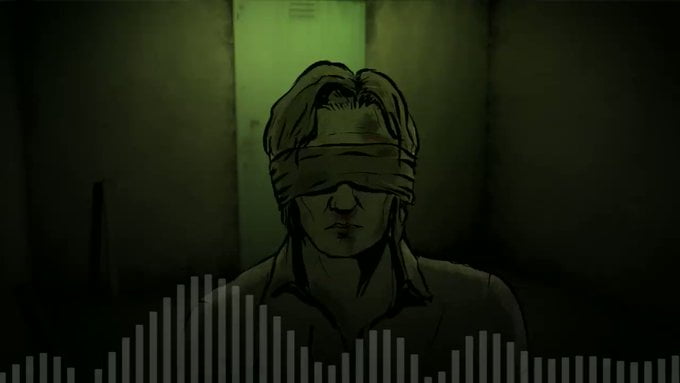
We investigate the powerful. Your donation supports our long-term investigations. Donate now!
CORRECTIV and its media partners subsequently identified a second possible victim. We’ll call him ‘Ali’. We also interviewed him several times.
He too had worked at an organization tied to the Gülen movement in Turkey. According to his account, he was kidnapped in a different city and then held at a torture site in Ankara for more than three months. He confirms the kidnappers’ modus operandi as well as their torture methods independently from Tolga.
Ali says he was not allowed to pray, was forced to stand upright and naked until he collapsed from exhaustion. “They told me I was a terrorist and accused me of all kinds of crimes.”
From the details of Ali’s account, it appears that he may have been held at a different location from Tolga. Ali was tortured using what his guards referred to as ‘the coffin’. This was a cramped closed box placed in the upright position in which he was forced to stand. Ali says that once inside, it was almost impossible to breath and that he quickly lost any sense of time or his surroundings.
Immediately after their kidnappings, Ali and Tolga’s families took to social media. This at least proves their accounts weren’t fabricated later, for example to support asylum applications abroad.
“Your wife is extremely annoying,” one of the guards once whispered in Tolga’s ear. That’s how he learnt that she was searching for him. She had been pestering the police and prosecutors, contacted international human rights organizations, called on social media for help in the search for her husband.
International human rights organizations such as New York-based Human Rights Watch have documented systemic torture and abuse in police stations and regular Turkish prisons. The Stockholm Center for Freedom, founded by Turkish journalists, has established about 20 cases of Gülenists who have disappeared without trace inside Turkey. Öztürk Türkdoğan, head of the Turkish human rights association IHD says he is aware of 15 cases and has himself worked on several of those. He assumes that Turkish intelligence services are behind the kidnappings, conducted in broad daylight, in most cases, according to witnesses, using a black unmarked van.
“Unfortunately, many of the victims who were abducted and held for a long time and then released do not speak about it,” Türkdoğan says. “But their families have told us that they were subjected to severe torture. The families also say that some could not cope and took their own lives.”
The Turkish government did not respond to a number of questions on its international abduction programme and the allegations of black sites. In the past, the government has denied torture. “They say that we torture. We have zero tolerance regarding torture,“ Erdoğan said after the coup attempt in 2016.
State cooperation
An international abduction programme does not become legal merely because the local justice systems are complicit.
Xhelal Sveçla, a senior opposition member of Kosovo’s parliament is clear on the point: “I can say that the evidence suggests that this is the most severe violation of our sovereignty since our declaration of independence. And it was committed by our own authorities.” As chairman of a parliamentary committee looking into the 29 March abductions, he is trying to get to the truth of the matter.
Kosovo is the beneficiary of significant official Turkish aid as well as private sector investment estimated at nearly 400 million euros in the past decade. The international airport of Pristina, for example, is owned by a Turkish businessman with close ties to Erdoğan. That adds up to considerable political clout.
Not all of the six men spirited out of Kosovo in March were forcibly taken from a car. Several were asked to report to local police stations that morning. CCTV footage from Pristina airport shows police escorting the six men through the airport building, their hands tied behind their backs, and then leading them to the private jet waiting on the tarmac.
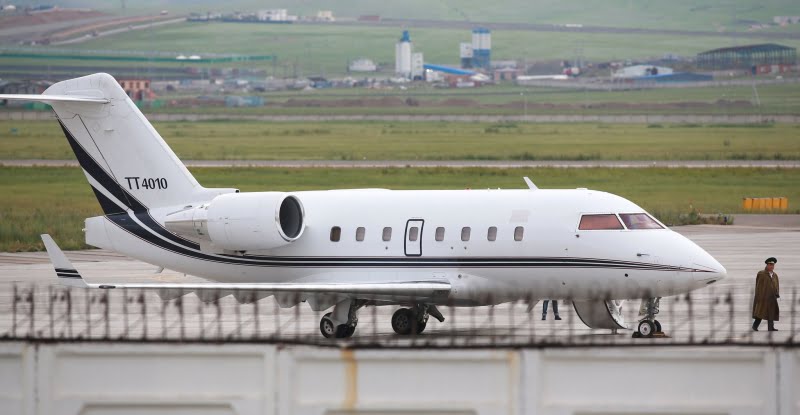
The woman who jumped out of the car next to the tree nursery is Yasemin Karabina. She teaches at the same school as her abducted husband, Yusuf Karabina. Later that day, she called relatives of some of those who had been abducted in Turkey. They said that there had been no contact but that the authorities had already informed them that the six men had now been handed over to the courts in Turkey and had been asked if they wanted to nominate a lawyer. The families in Turkey did not believe this and continued to search for the six men.
A few hours after the abductions, staff and students from the Mehmet Akif school staged a protest at Pristina airport. Their chant: “Give us back our teachers !”
But what of the private jet used in the Pristina operation? An investigation by CORRECTIV and Frontal 21 strongly suggests that the aircraft involved, registration TC-KLE, is one of a fleet of planes linked to the Turkish intelligence service MIT. In the paperwork at Pristina airport, the crew left behind a document that named the jet’s owner: a Turkish construction and tourism company called Birleşik İnşaat Turizm Ticaret ve Sanayi. The company was also listed as the jet’s operator.
The Turkish business registry gives the company’s address as 61, Ahmet Hamdi Street in Yenimahalle, a suburb of Ankara. This is exactly where employees of the Turkish intelligence service MIT are housed. The MIT premises are just down the road.
The company would appear to be a thinly-veiled MIT front company. It did not respond to a request for comment. The aircraft TC-KLE has twice flown to Germany recently, in February 2017 and again September this year, according to radar data and pictures taken by plane spotters. Both flights coincided with a visit by President Erdoğan and a high-ranking government delegation to Germany.
Yasemin Karabina, the teacher in Kosovo, has had no contact with her husband in the eight months since the kidnapping. She has been told by lawyers that he is in solitary confinement at the Istanbul Silivri prison. He has not been charged with any crime. Once a month, there is a custody hearing, from which both relatives and lawyers are barred. They’re informed only of the decision: a further extension of custody.
Not every country has been as obliging as Kosovo. On 27 July of this year in the Mongolian capital Ulaanbaatar, an abduction of Veysel Akçay, the head of a local Gülen school, failed after the authorities intervened.
Again, relatives raised alarms in social media and alerted local officials. At the last minute, the government prevented the jet from taking off with the victim. Akçay was released but no arrests were made, and Turkey denied involvement.
But local journalists took pictures of the aircraft: another Bombardier jet, type Challenger, registration this time TT-4010. The plane, it just so happens, is registered to the same construction and tourism company located close to the MIT headquarters in Ankara, according to Turkey’s civil aviation registry.
Turkish intelligence does not always rely only on its own assets, it seems. To abduct Gülen followers from the Republic of Moldova on 6 September, the kidnappers chartered a commercial airliner. On 12 May, 2017, the Malaysian authorities forced Ismet Özçelik, a physics teacher had who fled the country after the failed coup, to return to Turkey on a scheduled Turkish Airlines flight. He was accompanied by Turkish security personnel as well as two more captured Gülenists.
Somewhere in Sweden
The rest of the Özçelik family is now living in a remote rural area of Sweden in a small house surrounded by lakes. Ismet’s son Sühleyl Özçelik, previously a physics teacher at a Gülen school in Malaysia, now works as a nurse. His children are in the local kindergarten, his younger sister is at school.
Following the failed coup and the wave of arrests, Sühleyl encouraged his parents to join him in Kuala Lumpur. A few months after their arrival, they became an object of interest to the authorities. One day in December 2016, five immigration officials and four plain clothes officers paid a visit to his flat. They presented neither arrest warrant nor a search order, according to Sühleyl, but brought with them some documents from the Turkish embassy. Turkey had cancelled his father’s passport, they said, which was why they needed to take him with them.
Five uniformed police officers then appeared and arrested Sühleyl, his father and three of his friends. All were eventually freed after spending two weeks in the son’s case, the father two months in Malaysian prisons. His father was finally released after he was granted a refugee passport by the United Nations.
In May 2017, plain clothes police broke into his apartment to find his father. An attempt the next day to take his father to a safe location failed when just outside the capital Sühleyl’s vehicle was boxed in at a service station by five unmarked cars. About 30 men got out, some with tattoos and long hair. They seized the father and prevented the son from leaving the service station for six hours.
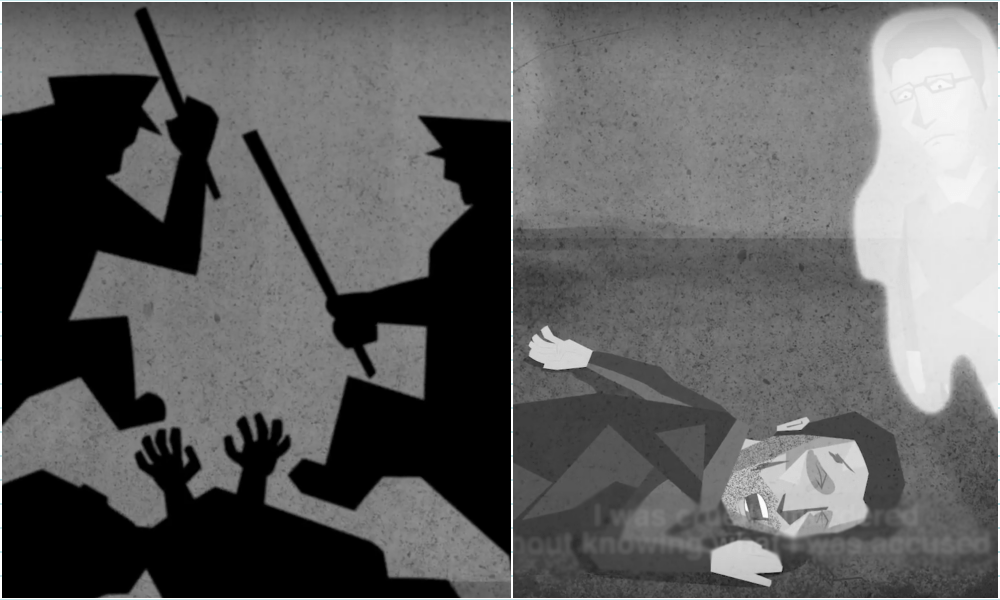
The Turkish government under Erdoğan maintains excellent relationships with Malaysia. Several Gülenists have been detained there. Malaysian media initially reported as an abduction “by unknown individuals” CCTV footage of two Turkish nationals in an underground carpark in the Damansara Heights area of Kuala Lumpur in May 2017. Police later stated that the two had been detained “for activities that threaten the safety of Malaysia under Section 130 of the Penal Code.”
The Özçeliks say they’ve lost everything, including their house in Konya, where they used to live. At least they feel secure in Sweden. “Unlike Kosovo, Sweden is not a country in which the leader … can just kidnap people,” Ismet Özçelik’s wife Hatice says.
Little has been reported about possible kidnapping attempts against Gülenists in Europe. But they’re not entirely safe there either, as this investigation shows. Gülenists are under pressure in Denmark in particular. In early 2017, Danish security services moved a Gülen journalist to a safe house for a period of two weeks saying they were concerned about his safety. Gülenist educational establishments in the country have lost over 1,000 students since the Turkish government labelled them “terror schools”.
In Switzerland, two Turkish agents reportedly failed in a bungled attempt to kidnap a Zurich-based Gülenist businessman soon after the coup in 2016. The Turkish government denied reports about the kidnapping attempt but in June this year, prosecutors issued arrest warrants for two Turkish diplomats alleged to have been involved.
The tensions have also take a toll on Gülenists communities across Europe on a more personal level, as an example from Italy makes clear. Two children born to Gülenists families here since the failed coup will grow up stateless as Turkish consulates in Italy refuse to grant them passports.
Somewhere in Europe
“I’m afraid of the other Turkish people who live here,” says Tolga. “They may be supporters of the Erdoğan regime.” That is one reason why nothing on his life in Turkey or his present location can be disclosed.
We’re meeting him at a café for the first time, on the edge of a large square in a city centre. A black Volkswagen van drives into sight. Tolga is pointing to it. “I’m afraid of these vehicles,” he says. It’s a little over a year now since he was released from detention.
Without charge.
Tolga recounts his ordeal. His eyes fill with tears especially when he speaks about his family.
During the darkest moments of his detention, Tolga says, he accepted death. He just hoped it would be over quickly. And he kept praying that they would not burn his dead body. Because if his family could not find his body, they would always have to live with the question whether he would one day return to them.
Eventually Tolga understood they were not going to kill him. The guards always made sure he didn’t see their faces. When he was made to leave his cell they even stood in such a way that he couldn’t see their shadows.
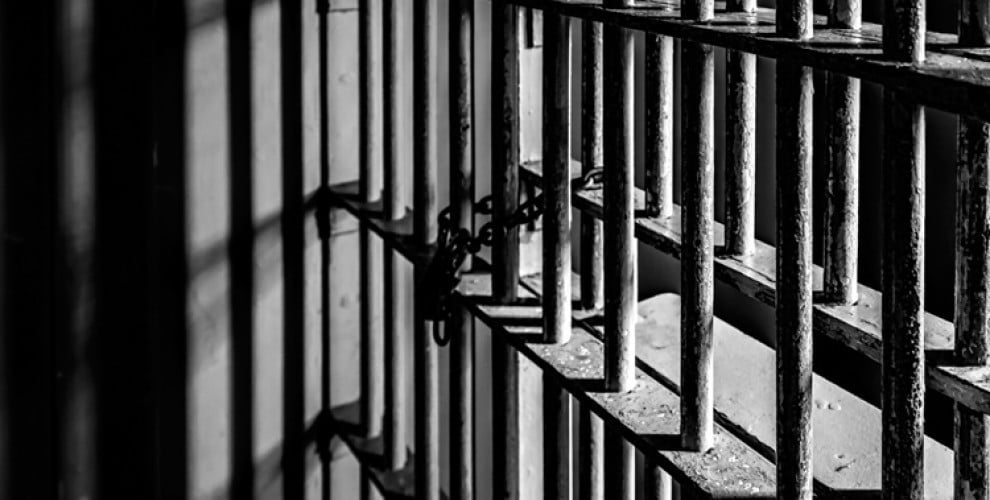
After a few weeks, the interrogations were scaled back to every second or third day. Still wearing the hood, Tolga starts to take note of his surroundings by touch. The walls of his cells are padded, Tolga could feel metal below the stuffing. It’s a row of five or six cells that are built into a larger hall, he thinks.
The guards try to persuade Tolga to collaborate. They want him to provide testimony against his own organization as an “anonymous witness”. In the Turkish legal system, the prosecution can rely on these witnesses. Sitting behind a curtain, identity hidden, nobody can assess their credibility.
“There is information the state cannot obtain through legal measures and wants to obtain it through the abduction of these people,” says human rights activist Öztürk Türkdoğan. “These people are released and forced to be anonymous witnesses.”
Turkish justice has lost all pretense of independence since the failed coup. Its actions resemble a witch hunt. Holders of accounts at banks linked to the Gülen movement are indicted. Thousands of Gülen supporters have been dealt with swiftly, sentenced to many years in prison, including through the use of “anonymous witnesses“. Thousands are still are being held without charged.
“We know everything about you anyway,” the guards had told Tolga, referring to the movement. “Just confirm it and save yourself.”
Tolga pretended to go along with them. To sound more convincing, he asked for money. And he pretended that his mind had been affected by the torture. At the same time, he worked out his own way of counting the days in detention, but when the guards asked him how many days he had been held, he provided a wrong answer.
One evening, after more than three months in detention, Tolga, still wearing a hood, was taken from his cell. He heard the same heavy sliding door being opened and found himself back in the van.
This time the drive took longer, maybe three hours. Tolga tried to memorize every noise, the bends in the road, the change of gears, the potholes. At some point he realized they’re driving in circles.
And then, he was freed. The guards returned his clothes and the items he had with him when he was abducted. Even the fake ID he had used when he was lying low.
Prior to his release, Tolga was instructed to drop a letter at a certain location in Ankara at a certain time. The document was to contain information about the first days after his detention. This is how his life as an informer for the Turkish state was to begin.
But Tolga baulked. He contacted his family and then went into hiding again. A few weeks later, he managed to escape to Europe. He explained the details of his escape route.
Tolga wants his story to be known. And he wants the perpetrators one day to be brought to justice. He wants that Turkey to become a country in which the rule of law is upheld and in which those accused of crimes can defend themselves in an independent open court. That Turkey is one day a country again in which the rule of the law of the strongest no longer applies instead.
Support independent journalism!
This investigation has been made possible through the support of CORRECTIV members. You too can support them. Learn more
Source: CORRECTIV , December 11, 2018
Tags: Persecution of Hizmet by Erdogan | Torture | Turkey |
























